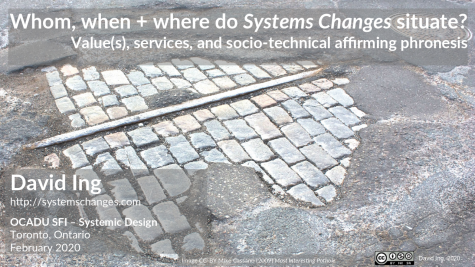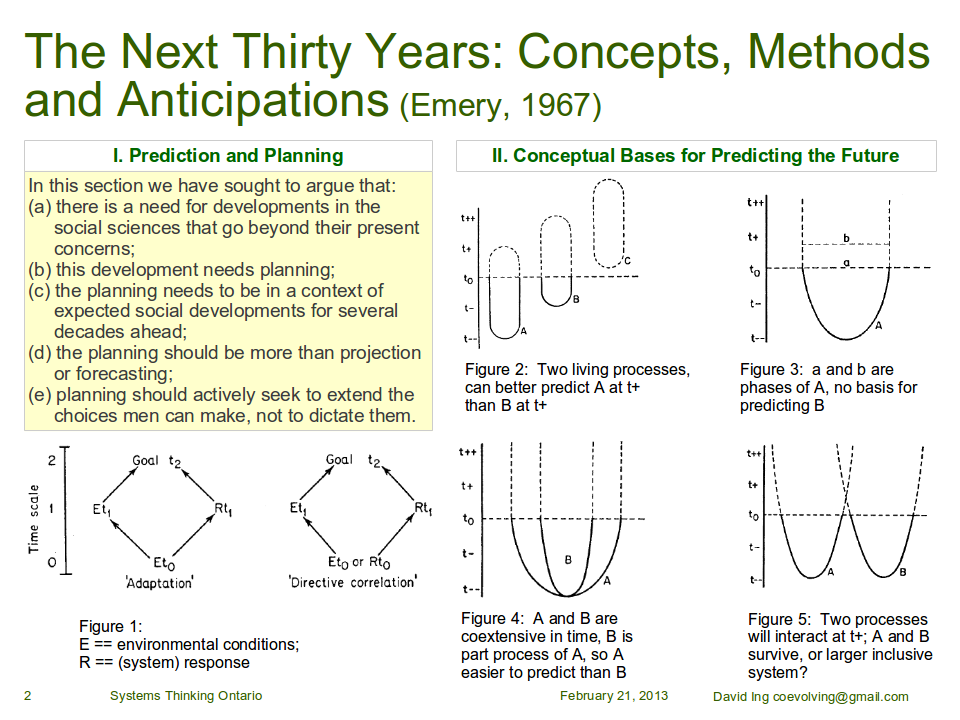In the famous 1965 Emery and Trist article, the terms “causal texture” and “contextual environment” haven’t been entirely clear to me. With specific meanings in the systems thinking literature, looking up definitions in the dictionary generally isn’t helpful. Diving into the history of the uses of the words provides some insight.
- 1. Causal texture
- 2. Contextualism and contextural
- 3. Texture
- 4. Causal
- 5. Transactional environment, contextual environment
- Appendix. Retrospective on the 1965 article from 1997
The article presumes that the reader is familiar with the 1965 Emery and Trist article,. The background in the Appendix provides some hints, but is more oriented as context in a history of science.
1. Causal texture
While Eric Trist (with Fred E. Emery) are generally first associated with the socio-technical systems perspective directed inside an organization, the socio-ecological systems perspective concurrently was conceived for with changes outside the organization. Rapid changes in technology, even those not currently in use in the workplace, were a concern.
… Read more (in a new tab)A main problem in the study of organizational change is that the environmental contexts in which organizations exist are themselves changing, at an increasing rate, and towards increasing complexity. This point, in itself, scarcely needs laboring. Nevertheless, the characteristics of organizational environments demand consideration for their own sake, if there is to be an advancement of understanding in the behavioral sciences of a great deal that is taking place under the impact of technological change, especially at the present time.




